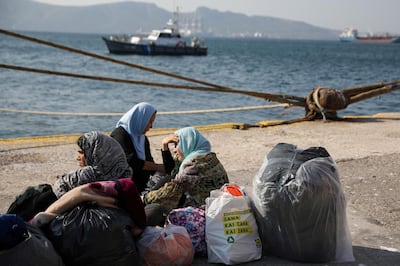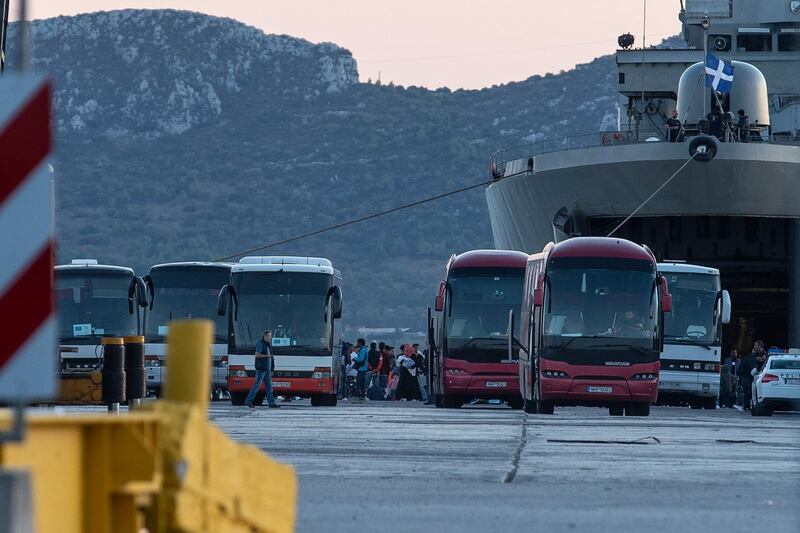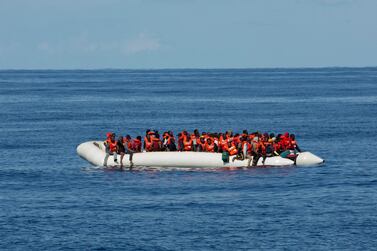The transfer of migrants from overcrowded island camps to the Greek mainland continued over the weekend, with authorities saying 415 arrived at the port of Eleusis, west of Athens, on Saturday.
Another 380 are expected to arrive at around midday on Sunday.
The migrants had been living on the island of Lesbos, at the Moria camp where almost 15,000 migrants still live in a space designed for 3,000.
They were being moved by Greek Navy ships usually used to transport tanks.

A senior official told The Associated Press the government planned to move 5,000 migrants to the mainland over the next 15 days.
The official said the migrants would be housed in hotels, as the peak tourist season is over. He said some parts of the mainland, such as northern Greece, will be exempted because there are many migrant camps there already.
He said the government would cap the number of migrants at 0.8 per cent of the local population per prefecture. He did not mention whether more permanent locations would be used in the future.
Greece is divided into 54 prefectures, but about half of them would be exempted from the migrant resettlement project, including all islands.
Several of Greece’s eastern islands, all close to the Turkish coast, as well as the land border with Turkey in the north-east, are preferred entry points for migrants.
The presence of large numbers of migrants on those islands — about 35,000 in all — has aroused the hostility of parts of the local population.
Early on Saturday, inhabitants of the eastern island of Kos, led by their mayor, prevented 75 migrants from disembarking from a regularly scheduled passenger ship that had picked them up from the remote island of Kastellorizo.
The municipality had blocked the landing with tractors and other vehicles. The mayor said that the government should transfer some of the 4,500 migrants already on the island instead of sending new ones.








